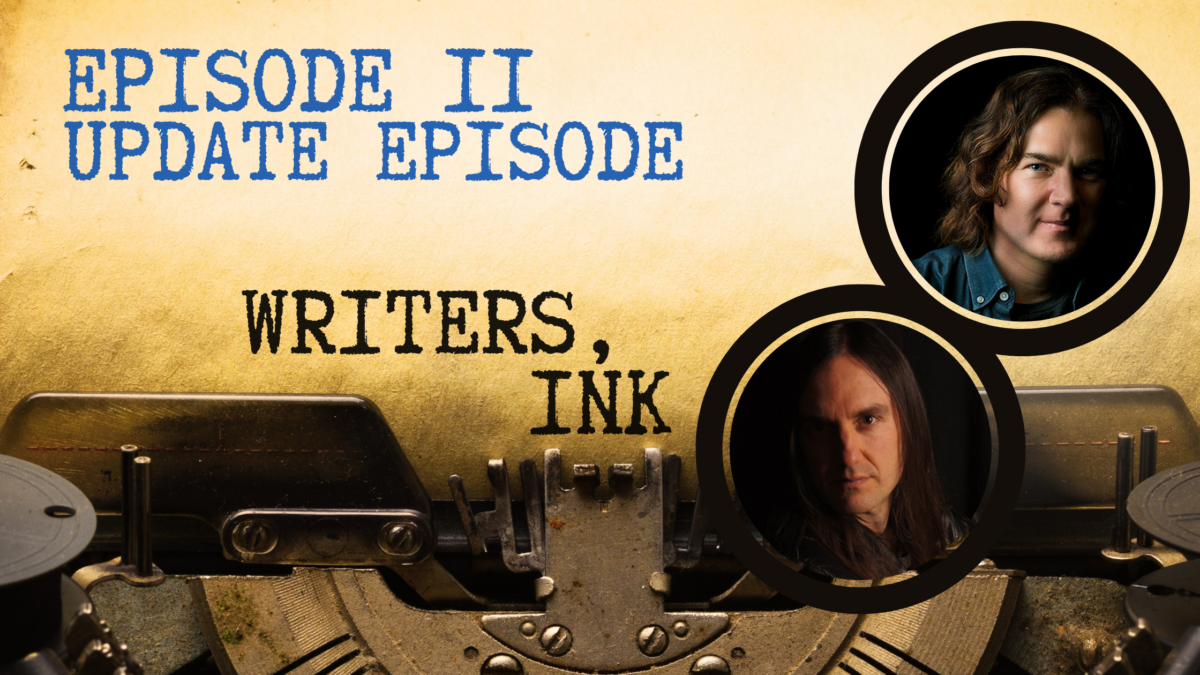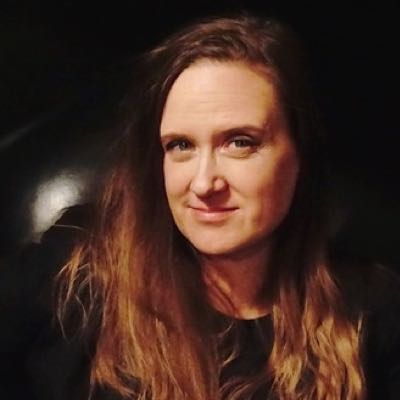

Thriving with Asperger Syndrome and a Manuscript Update
Despite being diagnosed with Asperger Syndrome as a young man, J.D. Barker continues to thrive while challenging all stereotypes and stigmas. In fact, Barker has become an international bestselling author and millionaire. The emphasis AS puts on structure has given him a unique approach to outlining his writing and creating interesting character backstories. By pursuing a career that compliments a disorder, J.D. Barker shows that anyone can be successful. In the second half of the episode, J. talks through the next steps of his manuscript with J.D.
Whether you’re traditionally published or indie, writing a good book is only the first step in becoming a successful author. The days of just turning a manuscript into your editor and walking away are gone. If you want to succeed in today’s publishing world, you need to understand every aspect of the business – editing, formatting, marketing, contracts. It all starts with a good book, then the real work begins.
Join international bestselling author J.D. Barker and indie powerhouse, J. Thorn, as they gain unique insight and valuable advice from the most prolific and accomplished authors in the business.
In this episode, you’ll discover:
- How J.D. uses Asperger’s to his advantage
- Which careers suit a disorder
- The importance of getting a correct diagnosis
- Why good stories have outlines
- How J.D. creates lifelike characters
- An update on J.’s manuscript project
Links:
J. D. Barker – http://jdbarker.com/
J. Thorn – https://theauthorlife.com/
Music by Nicorus – https://cctrax.com/nicorus/dust-to-dust-ep
Voice Over by Rick Ganley – http://www.nhpr.com and recorded at Mill Pond Studio – http://www.millpondstudio.com
Contact – https://writersinkpodcast.com/dev/contact/
*Full disclosure: Some of the links are affiliate links.





Kim B
6 years ago
This episode really resonated with me. Thank you for sharing, J.D. You both mentioned not liking labels, but sometimes a label can help. For most of my life, I called myself ‘flaky’ ‘flighty’ ‘scatterbrained,’ etc. I remember being told time and again that I could do well if I just ‘buckled down’. People are often frustrated with me because I start new things before I finish the old things. I hoped it would all get better when I became an adult, and when it didn’t I figured I was just a loser. It even became worse as an adult, because I was expected to be able to sit still and focus in a meeting or lecture and instead it was pure torture (not to mention exhausting). I constantly let important things slip. I have a hard time regulating my emotions. It was all very disheartening. When my son was diagnosed with ADHD, it became clear. I had ADHD. That label changed everything. I still have the same issues, like six novels written and none quite done enough for publication, 😉 but at least now I can find strategies to work with those issues. ADHD is often laughed at and dismissed, but it can be quite damaging if undiagnosed.
I think it’s important to talk about these issues if only to help others. So, thanks again!
Val Neil
6 years ago
This. My husband felt like a failure growing up because even though he was miles ahead of his classmates in terms of IQ, he couldn’t follow through on anything. Medication has been helpful for him, but he still looks back on what he “could have been” with a lot of remorse.
Labels aren’t a bad thing. I see so many parents who want to avoid labeling their kids, but labels are empowering, and kids get labeled either way–it’ll just be “brat” or “manipulative” or “lazy” instead of “autistic/ADHD.”
Kim
6 years ago
Yes. That looking back at what ‘could have been’ is heartbreaking sometimes. You’re so right about people getting labeled either way. I’d never thought of it like that. Great point.
J. Thorn
6 years ago
Thanks for sharing your story, Kim. It does help to talk about this stuff.
Val Neil
6 years ago
Fellow Aspie here, married to someone with ADHD. There’s a lot of overlap between the two, particularly the ability to hyperfocus, but they’re not quite the same thing. My husband’s school trajectory was a lot like J.D.’s. He was also hyperlexic with a high IQ, teachers didn’t know what to do with him, and he got bored very easily. In high school he coasted through without really trying and wasn’t diagnosed with ADHD until his twenties when he started seeking treatment for depression.
I did fine in school, aside from struggling to make friends, because sitting on my ass absorbing knowledge is definitely my jam. I learn a lot from visual/audio so conventional school was great for me (this is also why I subscribe to a billion podcasts). I do have to work to learn stuff that’s not interesting. If it interests me, I have no problem retaining it after hearing it once.
We have an autistic son and our daughter has ADHD, though I suspect she’s also autistic. Unfortunately the diagnostic criteria is written based on how boys present so a lot of girls get missed. There’s a whole generation of women, myself included, who didn’t find out they were autistic until after their children were diagnosed. I was about 36. The label is helpful, because it allowed me to find others who experienced the same things, and gave me the vocabulary to finally explain things like sensory processing disorder.
J. Thorn
6 years ago
Wow. Interesting distinction between diagnosis of boys and girls. Thanks for sharing, Val.
Jenni Clarke
6 years ago
Interesting.
I’m me and I like to finish things, I don’t like being interrupted when absorbed in something, I’m crap at social stuff, I anticipate conversations etc BUT I’ve learnt to accept somethings don’t get finished as quick as I’d like and that’s okay, I’ve learnt not to lose my temper when interrupted and many people would say I was an extrovert at a social situation but it’s just I become the person that is needed for that situation and it’s not the real me.
So although I share many aspects I think this is just my personality, my empathy and my introvertedness.
I worked with children with severe autism and aspergers etc and I never saw myself in them, although I could empathise and make a difference.
Thank you for talking about this.
Jenni Clarke
6 years ago
Love the chat about characters.
I am extremely empathetic and I know my characters so well sometimes they are more real than real people but I don’t do character sheets and backgrounds on paper- it’s in my head. I even know huge amounts about characters in my 500 word flash fiction and coud answer so many questions about them without thinking.
But I can see how other writers may need to do this in depth and I wish J the joys of making new acquaintances as he works through the process.
J. Thorn
6 years ago
It’s been fun for me to experiment more with character than I usually do.
Stephen
6 years ago
Oh, so so much on this episode. JD, thanks for talking about your Aspergers. My stepson has this. There are several things we’ve learned/talked about as a family.
1 – I see a lot of things he does that my father did. Though he was never diagnosed, we believe my father had some form of autism – which explains a lot and would have helped relieve some frustration through the years. My father never learned to read and struggled with basic human interactions.
2 – we joke because we notice a lot of things I do that my stepson does. We’ve pretty much come to the conclusion that while I may not have the label aspergers, I’m very close. we also look at everything on a spectrum also. If casual conversation has extremely talkative on one end and totally silent no matter what, and you are closer to the 2nd end, you may be autistic. We can list dozens of other things and rate ourselves where we fall on that scale. Adam might be closer to autism in quite a few, but I fall close to it on quite a few of our scales also. I also may be further along the scale for one indicator but still not be labeled autistic. There can be a ton of indicators to determine autistic, but not all people labeled autistic fall in the same spot on the scale for all indicators. sum up – I look at almost everything as falling on some scale and think people should remember there could be dozens of indicators of autism and not all autistic people have all of them or fall in the same spot on the scale.
3 – so, following #2, if we all fall on various spectrums of individual autistic traits, maybe we should really redefine normal rather than label someone autistic and think it’s a bad label. Again, humans are only like 10% different from chimpanzees when looking at dna. I may only be 10% different than adam or any other autistic/aspergers person if you look at the indicators. And as others have said, there is quite a bit of overlap with things like ADHD. I think what we term normal is too narrow and covers a lot less people than we may think.
4 – In our family, we also notice that many, many people with autism also have very high IQ’s. If you ever stand in a room with a group of people in mensa, you’ll see every trait of autism to its extreme, but most aren’t labeled autistic. JD, you said your IQ fell in the 150 range and you had aspergers. I would bet adams was above 120, not sure where. I also have been tested with a higher than normal IQ but haven’t been tested for autism – I’d be interested in where I fall. Also – we’ve said that if you take any group of Mensans and merge them to 1 person, you will have 1 uber-autistic genius.
OK, I apologize if this is a ramble and doesn’t all make sense, I was trying to get it out before I forgot things.
J. Thorn
6 years ago
Thanks for sharing, Steven. I think it helps to take away the stigma when we hear similar stories 😉
How To Develop Bestselling Story Ideas With JD Barker | The Creative Penn
6 years ago
[…] Choosing strong ideas and improving a story before it’s written – Writers Ink episode. […]
How To Develop Bestselling Story Ideas With JD Barker – The Son Also Writes
6 years ago
[…] Choosing strong ideas and improving a story before it’s written – Writers Ink episode. […]